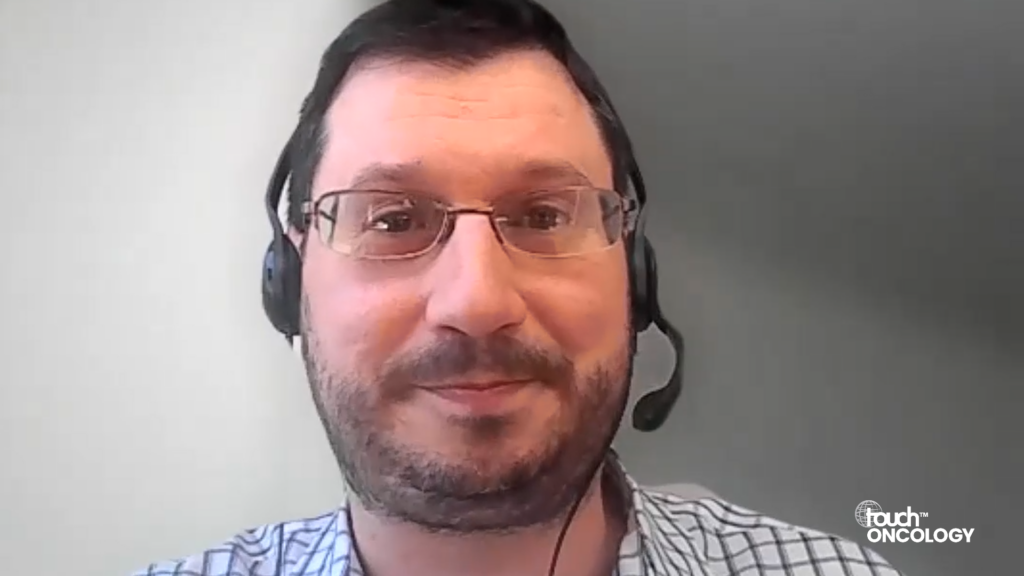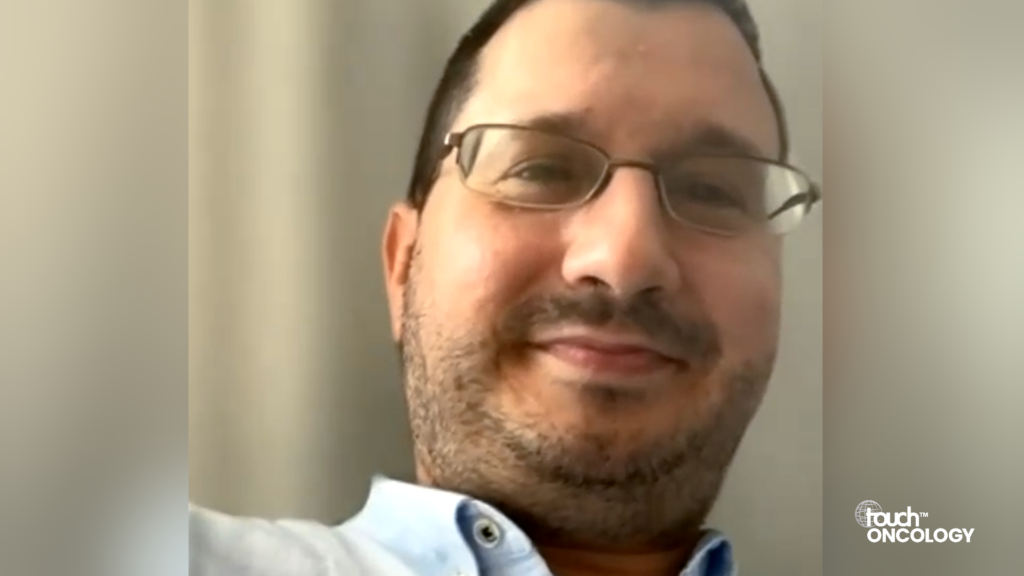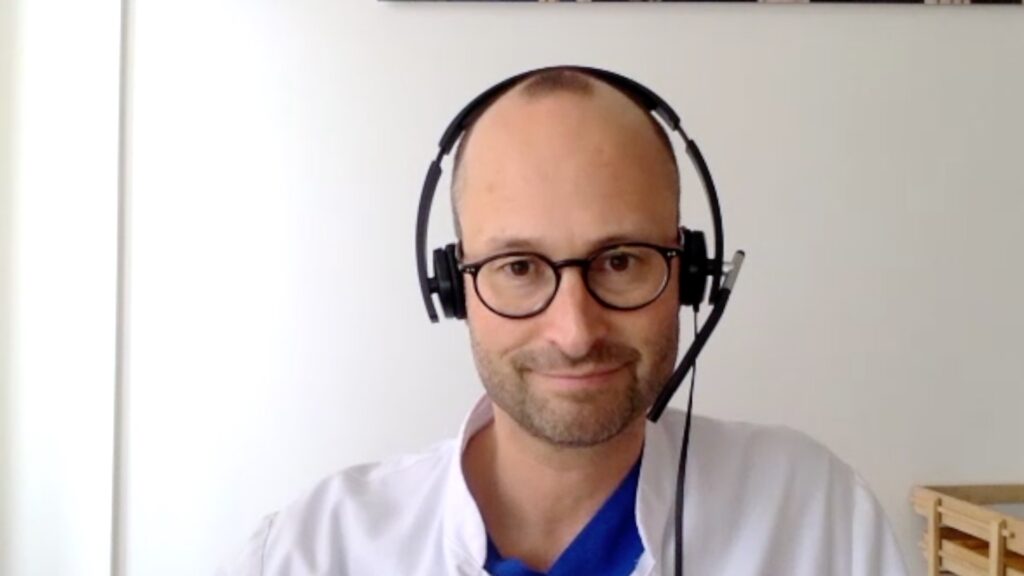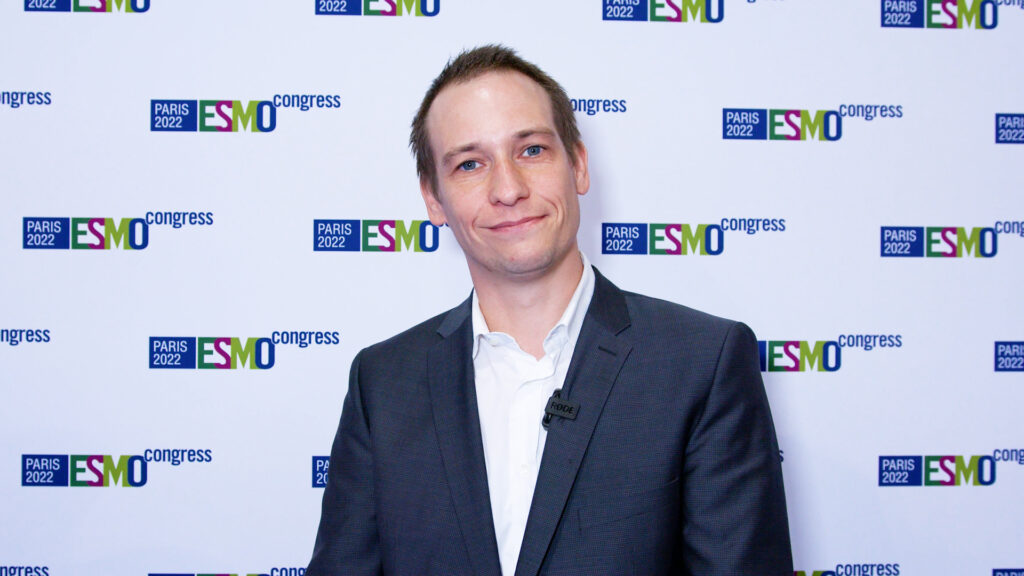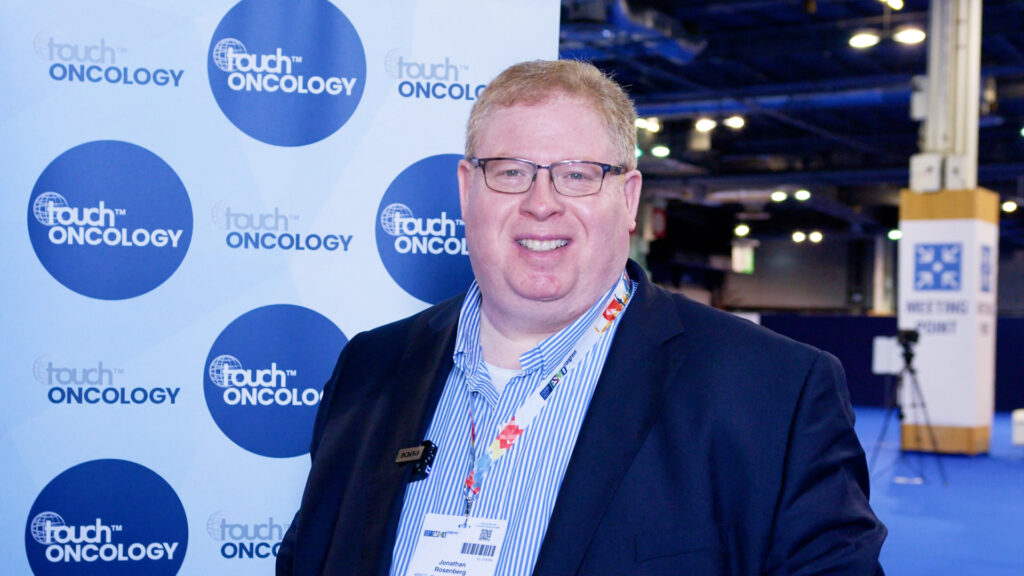PD-L1 assays use various methods to predict PD-L1/PD-1 blockade outcomes, recent data suggests clinically relevant PD-L1–expressing immune cells are dendritic cells. Dr Enrique Grande Pulido (MD Anderson Cancer Centre Madrid, Madrid, Spain) joins touchONCOLOGY to discuss a post-hoc analysis investigating PD-L1 expression on immune cells by SP142 co-localises with dendritic cells, and the associated improved overall survival with atezolizumab in patients with untreated metastatic urothelial cancer.
The abstract entitled ‘PD-L1 expression on immune cells by SP142 co-localises with dendritic cells and is associated with improved overall survival (OS) with atezolizumab in patients with untreated metastatic urothelial cancer (mUC)‘ Abstract 1735O, was presented at European Society for Medical Oncology (ESMO) 2022.
Questions:
- Could you give us a brief overview of PD-L1 assays to predict outcomes of PD-1/PD-L1 blockade, and their findings to date? (0:17)
- What did the IMvigor 130 trial teach us about the efficacy and safety of atezolizumab in patients with untreated metastatic urothelial cancer? (1:18)
- What were the aims and design of the post-hoc analysis you are presenting? (2:25)
- What were the findings of the analysis? (3:31)
- How can these findings be used to improve outcomes with PD-L1 inhibitors? (4:18)
Disclosures: Enrique Grande Pulido is a consultant for Advanced Accelerator Applications, AMGEN, Angelini, Astellas, Astra Zeneca, Bayer, Blueprint, Bristol Myers Squibb, Caris Life Sciences, Celgene, Clovis-Oncology, Dr. Reddy’s, Eisai, Esteve, Eusa Pharma, Genetracer, GSK, Guardant Health, HRA-Pharma, IPSEN, ITM-Radiopharma, Janssen, Lexicon, Lilly, Merck KGaA, MSD, Nanostring Technologies, Natera, Novartis, ONCODNA (Biosequence), Palex, Pharmamar, Pierre Fabre, Pfizer, Roche, Sanofi-Genzyme, Servier, Taiho, Tecnofarma, Thermo Fisher Scientific, and Zodiac; receives grant/research support from Astellas, Astra Zeneca, IPSEN, Lexicon, Merck KGaA, MTEM/Threshold/Tersera, Nanostring Technologies, Pfizer, and Roche; is on the advisory board for Roche; and receives honoraria/honorarium from Roche.
Support: Interview and filming supported by Touch Medical Media Ltd. Interview conducted by Katey Gabrysch.



